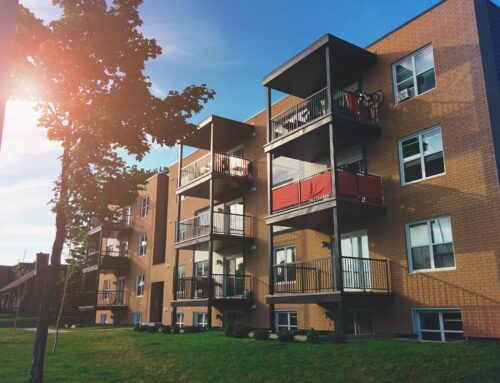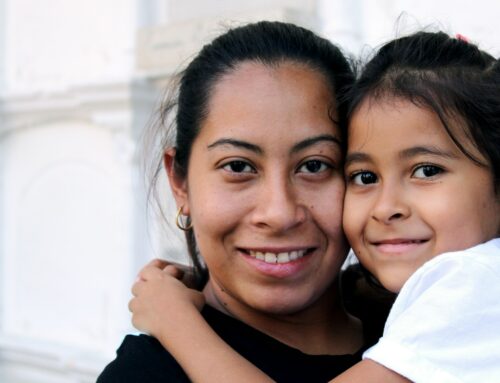EcoVillages are an alternative form of living, which are becoming increasingly popular in Québec. As the name suggests, the EcoVillage is community oriented way of life, happening mostly in rural areas and following an earth-conscious philosophy. Off the grid and without centralized municipal resources like water and electricity, the communities typically rely on solar energy, well water and human ingenuity to reduce their carbon footprint and minimize their dependency on fossil fuels. The basic idea is to live in harmony with the social, ecological, economic and cultural environment. These communities are also founded upon the same values that Québecers generally espouse, including respect, diversity, cooperation, solidarity and sustainability.
Today eco-villages exist in 70 countries worldwide. The average population of an eco-village varies between 50 and 150 inhabitants. The EcoVillage network of Canada lists the major ecovillages in the country. Their website also provides a space where the loose affiliation of communities can collaborate to share resources and ideas.
Where are some EcoVillages in Quebec?
La Cité Écologique is the biggest ecovillage in Québec, located in Ham-Nord, and has been around for over 30 years. This ecovillage provides a number of modern services for their members, including car-pooling, organic meals, education and yoga classes. More than simply a residential community, La Cite also runs a school for primary and secondary students, and operates a variety of agricultural based businesses.
TerraVie is a smaller ecovillage situated in the Laurentians. Its main focus is on eco-friendly construction and an organic and sustainable agriculture.
Cohabitat is an urban ecovillage located in one of the neighbourhoods of Québec City. Its main focus is on the social and economic aspects of sustainable development.
What are the basic characteristics of the communities?
- Farming: For the fewest trips to the grocery store (which ordinarily involved the burning of petroleum products) and for the highest quality produce, EcoVillagers plant extensive gardens to grow their own food. Typically the goal is for the community to be as self sufficient as possible. Growing enough quantity and variety to become 100 percent self sufficient is quite difficult and rare, although not unheard of. In accordance with their ecological way of life, the villages grow everything organically. Furthermore, they are also able to grow many rare and heirloom varieties of grains and vegetables that are ordinary unavailable from the market.
- Permaculture: A philosophy of horticulture that has become widespread in ecological circles, permaculture goes beyond simple organic farming. Permaculture looks at the whole environment, and puts a strong emphasis on soil health, which is maximized by companion planting and sensible crop rotation. This goes hand in hand with biodynamic farming, which takes it one step further, looking at all aspects of how the farm is managed and operated.
- Use of local material for construction and housing: Another aspect of biodynamic farming, the use of local material is an effective means to reduce the carbon footprint by eliminating the need for transportation, which often involves sending material around the world by ships, trains and trucks. It’s also in keeping with traditional ways, and lends a sense of aesthetic consistency and authenticity to the community. There’s something special about looking around the village and seeing the your home and your neighbors home are built from the wood of your local forest. It also forges a deeper connection between the village and the forest, and with nature in general, and a sense of responsibility to be good stewards of the land.
- Promote organic, self-sustainable farming: In addition to running an ethical and ecological farm for personal consumption, the EcoVillage sets an example for others in the area to to do the same. In order to spread the beneficial ideas, they will often host workshops on topics like green building, permaculture, yoga, meditation, and so on.
- Sustainable energy supply: Living off the grid means having alternative, renewable sources of energy. Generally this means solar panels and small wind turbines. As these technologies have improved over the years, it has become easier and easier to live entirely off grid, with zero reliance on public utilities.
- Provide integrated and long-term ecosystems: Another key aspect of permaculture and biodynamic farming is having the long term vision. Rather than just planning for next year’s crop, the biodynamic farmer thinks about the next several years of crop rotation, about building up the soil for years and years to come, and about protecting the forests for future generations.
- Improve the local biodiversity: As the soils is built up, more and more plants, animals and insects can thrive in the restored ecosystem. In many cases, species that had disappeared will begin reappearing in what had been there traditional, native habitat.
- Lifestyle: More than just a style of farming and architecture, this is a whole way of life, one that that generates an extremely low (or carbon-neutral) ecological footprint. It involves a whole different way of thinking and approaching life, from shopping, to eating, to parenting.
What about visiting one of the EcoVillages?
La Cité Écologique offers guided tours, family weekends and B&Bs, so that you can discover their way of life. The two-hour tours are available in the spring, summer and fall, for $20 per adult. They also offer internships for those interested in a deeper involvement. Joining their community is not a process to be taken lightly. Read more about the three-year integration process on their website.
More Eco options in Canada
If you’re passionate about protecting the environment and living more sustainably, check out these other articles.
Moving to a New City in Canada?
If you’re moving to or within Canada, and you’re struggling to understand your new community, or make sense of the local culture and bureaucracy, ARIANNE is here to help. We’ve been helping families and professionals relocate to Canada since 1996. Whether you’re shopping for a house, enrolling in healthcare, looking for good schools, or trying to navigate any other process, ARIANNE’s Online Relocation Guides have the comprehensive, essential, local information you need. We also offer personalized services and consultations. Feel free to contact us if you’ve got questions.







Leave A Comment